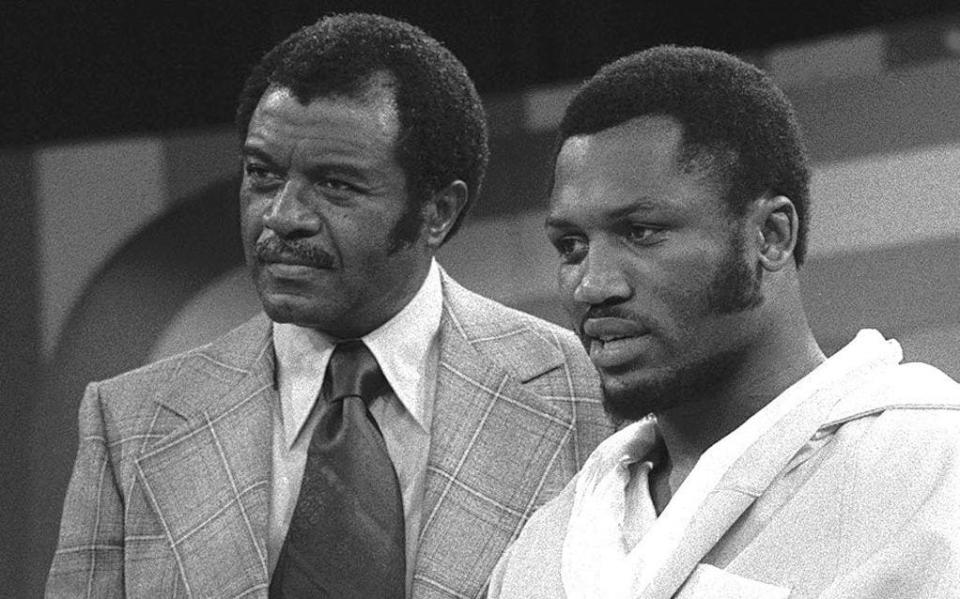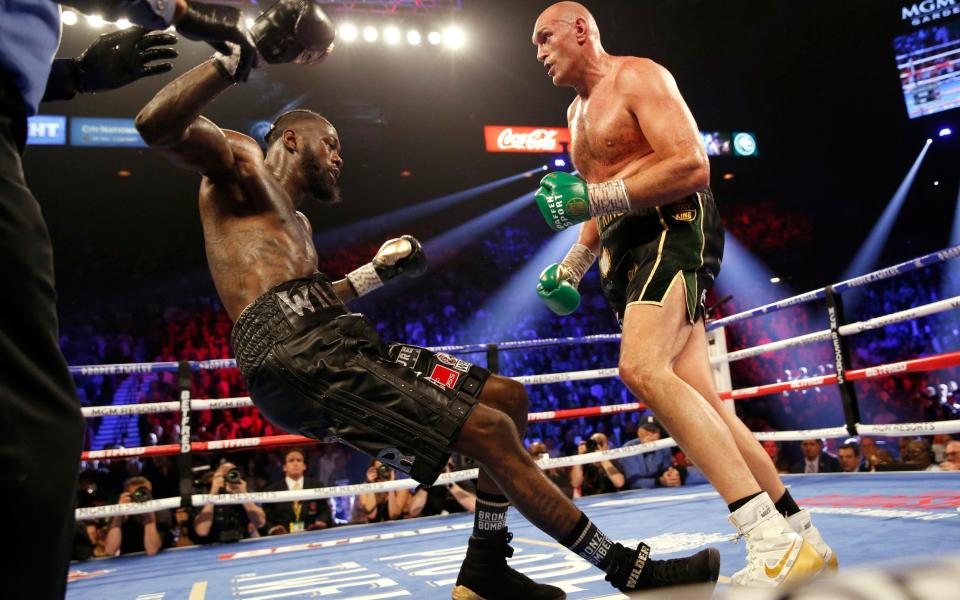Deontay Wilder's trainer deserves a bonus for throwing in the towel, not the sack – he saved his career and may have saved his life too

It touched such a nerve that it ended up as a T-shirt homily: "Sit down, son, it's all over. But no-one will ever forget what you did here today.” Those words were delivered to Joe Frazier by Eddie Futch, the doyen of boxing trainers, before the 15th and final round of the savage Thrilla in Manila’ in 1975, when Frazier could no longer see Ali’s punches through one of his battered eyes. Futch’s moral courage in pulling his fighter out when he might have been three minutes from victory has been honoured many times since without fully forcing home its message.
Mark Breland, who defied his fighter and his colleagues in the corner by throwing in the towel for Deontay Wilder in Las Vegas on Saturday night, will probably lose his job for acting on instinct when Tyson Fury was pummelling the defending champion against a ring post in the seventh round. A white sheet fluttering on to the canvas is highly loaded. In the game’s macho lore it’s an act of surrender to be undertaken only by those unwilling to make the ultimate sacrifice of being maimed or even killed.
Breland is a former Olympic and world champion who knows more about risk than Jay Deas, Wilder’s “head coach” and a former crime reporter, who says he “disagreed” with Breland’s decision to spare America’s champion further punishment. When the referee told Wilder the white flag had been raised, he shuffled back to his corner wincing with anger. Breland pointed to the ear from which blood had been flowing. Nobody in the corner though was on his side.
At the subsequent press conference Deas disowned Breland and ignored a detail later remarked on by ex-pros. By saving Wilder from the final knock-down, and possible lifetime injury, Breland breathed credibility into a third fight, which Wilder now looks certain to demand — as is his right, under the terms of their arrangement. Knocked out, on the floor, Wilder would have been a hard sell for the promoters of a trilogy. Fury’s win would have been so comprehensive that public interest would have waned.
Instead Wilder can now blame Breland and say he might have one-punched his way out of trouble had one of his cornermen not gone rogue and exceeded his brief. Wilder has plenty of other excuses. He claimed Fury was allowed to rabbit-punch him repeatedly and even blamed the heavy metal space trooper’s suit he wore into the ring as part of Black History Month. He claimed it drained the energy from his legs.

What really sucked the life out of him was the first knock-down, in the third-round, which left him dazed and clinging on. But the first point of call for any undefeated champion beaten so brutally is denial. The next morning I bumped into a former heavyweight who said: “Wilder will spend the next three months crying, because that’s what I did when I lost the biggest fight of my life.”
Few can comprehend what losing in the way Wilder did in Las Vegas does to a champion’s self-esteem. Life’s edifice crashes, in full public view; the TV replays speak of humiliation and a vast scene-shift in favour of the victor. Wilder was no amateur in the art of self-inflation and his faith in his one-punch power was unbreakable. It served him well in a 43-fight career and would serve him well again, even as Fury dominated the first seven rounds. Or so he kidded himself, before Breland’s thoughts turned to duty of care.
“I understand — it’s an emotional decision — but that’s not his position,” Wilder told The Athletic on Monday. “I’m not being emotional now. For many, many years, I have talked about this to my team. They know my demeanour, my warrior mindset, and if I say I’m going in there to try to kill a man like I have, I accept that in return: he will have to kill me as well. I’ve told them many times that if anyone throws the towel in on me, there will be consequences.”

We have been here before in various forms. Roberto Duran’s surrender against Sugar Ray Leonard in their second fight became one of boxing’s great obsessions, with endless speculation about why Duran turned his back, and whether he really did say to the referee: “No mas” (no more).
In more recent times, the Australian Kostya Tszyu was saved from disfigurement or death when his trainer, Johnny Lewis, threw in the towel before the final round against Ricky Hatton in Manchester in 2005. Tszyu later found following a scan to have lesions on the brain and Lewis was feted for his foresight and exemplary compassion. A 12th round in the that light-welterweight world title fight might have had consequences far beyond the loss of Tszyu’s belt.
Lots of things get put on T-shirts, many of them facile. “Quitters never win and winners never quit,” is one of the banalities of our age. It is quite possible for someone in sport to give their all and still be overwhelmed. To distinguish between courage and mortal risk is not easy. But we ought to at least try to see the dividing line, as Breland did on Saturday.
The old fighter told me the morning after Fury’s win: “As a heavyweight boxer, would I like to have seen the knock-out? Yes. Am I glad the towel went in? Yes.”

